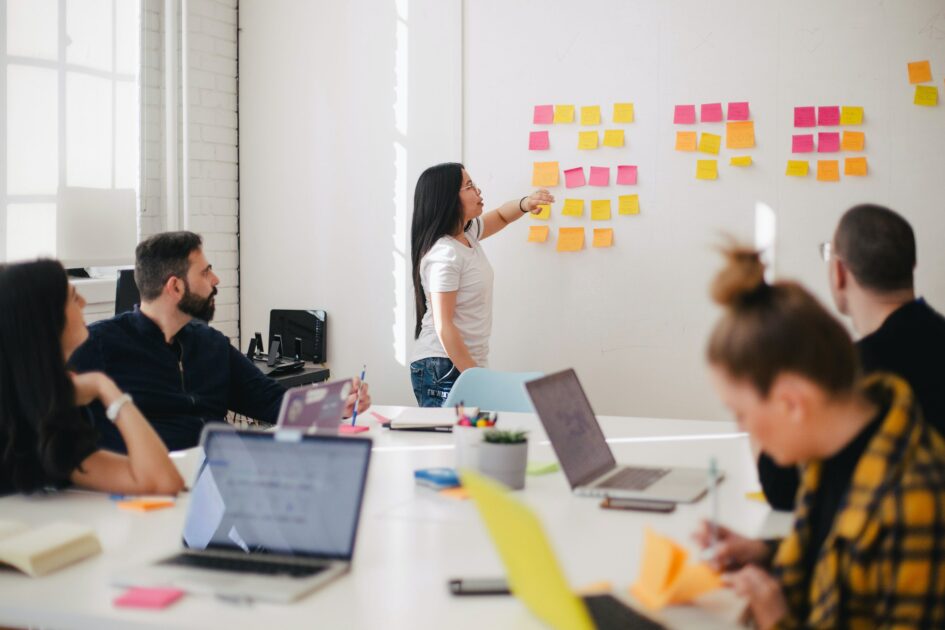Recently I observed a class with a role-play activity. I found the class very productive and student-focused. The students were divided into 4 groups and each group has a leader with a flipchart stand. In the flipchart, the leader was assigning who is responsible for which role play. The instructor has shared a scenario with them and students were playing roles based on that.
The activity needs a simulated environment set up to accommodate 4 groups, flipcharts, markers, sticky notes, etc. Although if that activity needs to be shifted online. We can use Microsoft Teams and break-out rooms. Students can use an online blackboard instead of the flipchart and they can open the camera to conduct the role plays.
The key factor for this kind of activity is to deliver clear instructions and make sure that trainees understand what is the teacher’s expectation otherwise it can create confusion among trainees. It is a good idea to show some video tutorial or demonstration by the teacher with a good student.
This specific role-play activity or scenario-based learning is based on experimental learning theory. The students learned by the practical work and experiment. Kolb’s model of experimental learning revealed the important factors of learning by hands-on and the positive effect on understanding the concept.
Kolb’s experiential learning theory consists of a cycle of four elements:
- Concrete Experience
- Reflective observation
- Abstract conceptualization
- Active experimentation
Each phase is deliberated below based on the role-play activity.
Concrete experience: In the first phase students are engaged in discussion, practical work, and hands-on tasks thus they are experimenting. For instance; In the above case, students in groups brainstormed and discussed the ideas.
Reflective observation: The second phase allow students to reflect on their learning. After discussion students will be able to consider their understanding of the scenario and role play. Critical thinking and analysis of experience are important here.
Abstract conceptualization: In this stage, the students can merge the learning experiences into the existing knowledge schema. Therefore the new concept has been developed for the students. Such as students can use the ideas from peers, teachers, other assignments or courses, and their own experiences to acquire a better understanding.
Active experimentation: The final phase is testing where students are implementing the decision to solve a specific problem given by the teacher. After passing through stages 1, 2, and 3 finally students can confidently execute the plan to complete the role-play task effectively.
References:
Experiential Learning – Atlas of Public Management. Atlas101.ca. (2022). Retrieved 4 February 2022, from https://www.atlas101.ca/pm/concepts/experiential-learning/.
Youtube.com. (2022). Retrieved 4 February 2022, from https://www.youtube.com/watch?v=PY-4TXvYNBI

Leave a Reply
You must be logged in to post a comment.